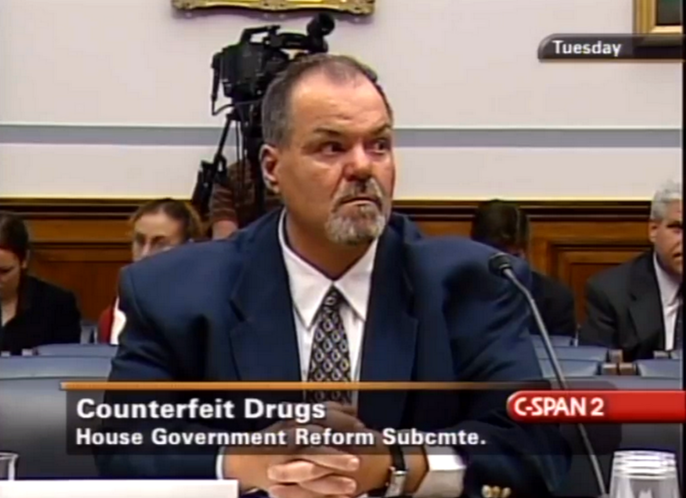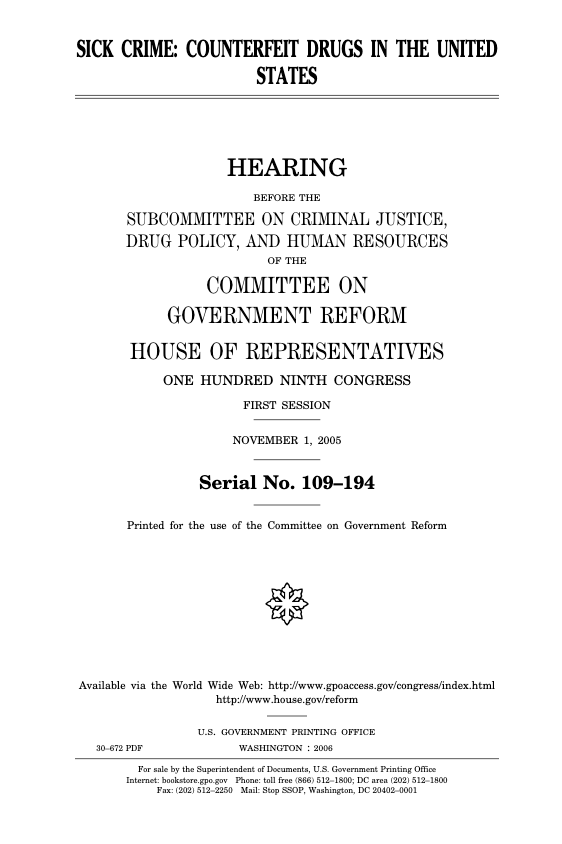A 16-year-old suffered weeks of agony when he received counterfeit medicine
In February 2002, 16-year-old Long Island, New York resident Timothy Fagan needed an emergency liver transplant. The transplant was lifesaving, but Timothy suffered from terrible anemia after the surgery, and his doctor prescribed him a weekly injection of Epogen to treat it. The Fagans found that their son’s Epogen injections were incredibly painful.
As Fagan's father Kevin remembered when he testified about the problem of counterfeit medicine before congress in 2005,
...after each injection my son woke up screaming in pain. Through everything my son has been through, I have never heard him scream like this before. Several hours after the first injection the pain caused him to wake out of a sound sleep. My wife and I ran into his bedroom. I fully anticipated finding a robber or burglar from his blood curdling screams...Tim was doubled over crying, screaming, ‘‘help me,’’ and I didn’t know what to do to help my son.
Timothy’s doctors, who had never seen this side effect in other patients, did not know what to do, either. After two months of weekly injections, the Fagans’ local pharmacy notified them that the U.S. Food and Drug Administration (FDA) had discovered counterfeit Epogen in the American drug supply. When they checked their vials, they learned that the medicine Timothy had been injecting was, in fact, counterfeit.
Katherine Eban, the author of the 2005 book Dangerous Doses: A True Story of Cops, Counterfeiters, and the Contamination of America’s Drug Supply, joined Kevin Fagan in a November 2005 congressional hearing to explain how Timothy received the counterfeit medicine that had caused him so much suffering. A Miami pharmacy, she told representatives, legally purchased 110,000 vials of 2,000 U/mL Epogen from drug distributor AmerisourceBergen. The pharmacy sold the drug to a Florida-based drug counterfeiter named Jose Grillo, who transported the vials in used paint cans to a trailer in Miami. There, a friend of Grillo’s soaked the vials to remove existing labels and replaced them with fake labels for the higher dose 40,000 U/mL Epogen. The counterfeiters stored the “uplabeled” medicine, which went from being valued at $25 per vial to $470, in a beer cooler inside a Miami strip club for resale. Various companies sold and resold the Epogen before it ultimately landed with AmerisourceBergen again. The distributor sold it legally to licensed pharmacies without knowing that the medicine had been tampered with.
According to Eban, 97,000 vials of the counterfeited drugs reached patients.
Incidents like Timothy’s happened in the early 2000s because states did not regulate small drug wholesalers strongly enough to prevent criminals from introducing undetected counterfeit or mishandled medicines into the legal prescription drug market. These weaknesses are being remedied by the Drug Supply Chain Security Act of 2013 (DSCSA), which protects American patients by creating national licensing standards for wholesale distributors and third-party logistics providers, and implementing track-and-trace systems to identify every company involved in manufacturing, distributing or dispensing an FDA-approved prescription drug.
Current prescription drug importation proposals threaten the improvements of the DSCSA. Learn more.
Learn more about how drug importation threatens American patients
Email editors@safemedicines.org to express concerns about dangerous importation schemes.
Read (or watch) congressional hearings about fake drugs in the U.S.

